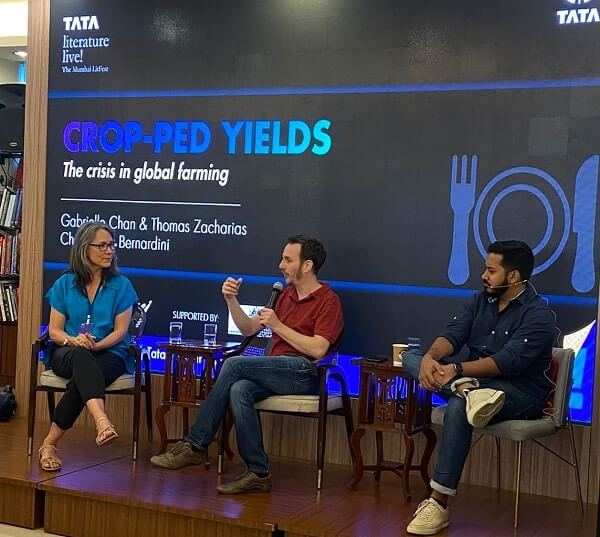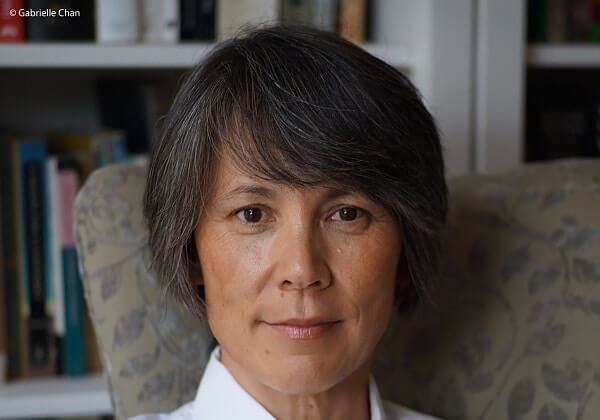The 13th edition of the Tata Literature Live! Mumbai LitFest kicked off on November 11 at the National Centre for Performing Arts.
And the Australian representation this year looks lit! Gabrielle Chan, a journalist for over 30 years, is one among a powerhouse line-up this time round.
Chan is currently the rural and regional editor for Guardian Australia. She has authored two books, Why You Should Give A F*ck About Farming and Rusted Off, which was shortlisted for the Prime Minister’s Literary Award and the Walkley Book Award.
We leapt at the chance, at the sidelines of the festival, to ask Gabrielle Chan some quick yet important questions.
Is this your first trip to Mumbai/India?
It is my first trip to India. It is something of a full circle because for my Higher School Certificate, I was lucky enough to study Indian history. My teacher just happened to specialise in that subject so we got to do that for modern history. India has such a rich history so I have carried that with me ever since. I wanted to come here and never got the chance so I have fulfilled a dream. I have wanted to see the fabulous Indian synthesis of the old and the new, the modern and the ancient. I am looking forward to talking to citizens about their concerns and views of the world. I also think the Indian food is the best. It agrees with me more than any other! Australia and India share a colonial legacy and I think that is reflected in our respective histories right up to the modern day. I can see that in some of the infrastructure, some of the cultural habits (certainly sports like cricket) but also some of resentments over the damage caused to local cultures by the British colonial project.
In your recent book, you mention that Australia has no national food policy or an agriculture strategy. What can India learn from this?
I do not presume to know Indian farming systems well and they are very different to Australia but some of the Indian agricultural themes have resonated with me in the short time I have been here. I have watched from afar some of the debate about the implementation and subsequent repeal of the farm laws that sought to deregulate some of the Indian agricultural structures. The farmer protests that occurred in the past two years suggest that farmers still hold an important cultural place in Indian society given the sympathy I have heard in the broader population in my conversations.
The other thing that highlights is the ongoing debates about the corporatisation of agriculture. And this is having an impact on farm outcomes whether they are in India or Australia.
Given Australia deregulated its farming structures in the 1980s-90s, I think there are some valuable lessons India could learn on competition. That is, that deregulated markets don’t solve everything and balance is required if food security is going to be achieved. The pandemic experience that crimped global supply chains showed this. Diversity of both business size and produce is vital if agricultural systems are to remain robust.

Can you list the political, economic, environmental and social pressures on farming? How does your book shed light on these issues?
This is a very big question. Politically, governments are looking to farmers and land managers to solve some of the biggest problems of our time such as climate change and reducing emissions. Economically, pressure remains on farmers to keep the price of food low, while their input costs keep rising. Environmentally, consumers, particularly those with reasonable incomes, are demanding more transparency on where their food is coming from. As a result of all of the previous pressures, farm populations are dwindling as farm scale is forced to increase to capitalise on economies of scale. My book delves into each of these areas so the short answer is, please read it!
Can you tell us ways in which we can consume food without harming the environment?
Ultimately the choice of food depends on your income and/or your capacity to buy or grow some of your food. I aim to grow vegetables when I can but I have the luxury of space. I aim to get food locally where I can and try not to eat too much processed food for my health but also because it takes more resources. I aim to know where my food has come from where I can. And I try not to eat food out of seasons where I can. All of these aims are goals and I cannot always meet them but I try. But I think we need to understand that humans will always have an impact on our landscape because we are part of the ecosystem. How we live requires choices and choices are not always easy. Farmers also have to make choices in the act of growing food, balancing the need to make a living with creating a healthy product. We need to understand their choices as well.
Could you share some artistic goals you have set for yourself and what young writers can learn from your experiences?
My artistic goal is to be the best writer I can be and have the most authentic writing voice I can. I think sometimes young writers can try to emulate other writers but finding your own unique voice is what is going to create your niche in the writing world. And if that voice is authentic, it will resonate with readers, because somewhere in a world of eight billion people, it will strike a chord.
The other advice is read your work out loud. I read my book for the audiobook version. While I normally mumble away to myself while drafting and revising, the experience of reading and projecting that work made me realise I needed to hone my sentences better and shorten my sentences. Because if I was tripping up on my syntax, readers would too.
READ ALSO: Antoinette Lattouf at Mumbai Lit Fest




